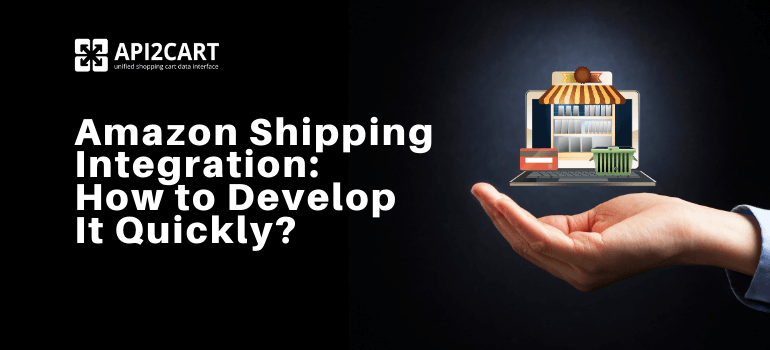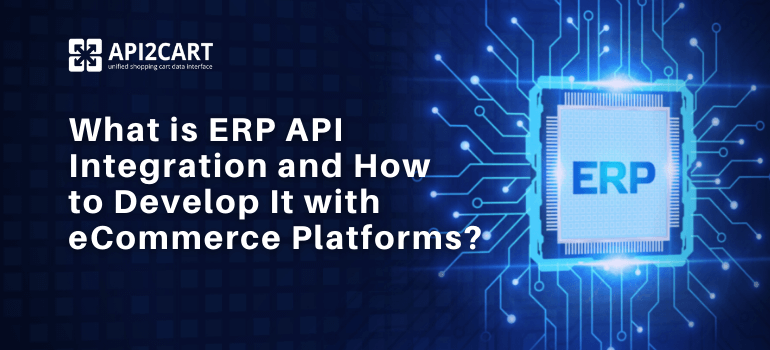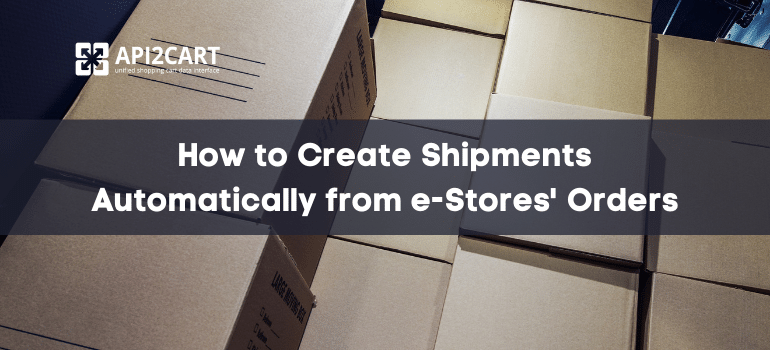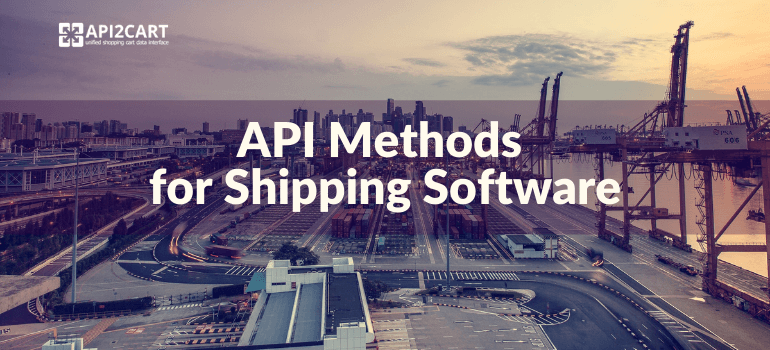
It is already known that without automation any business cannot compete in today’s fiercely competitive market. Speaking about the eCommerce industry, one of the highly beneficial systems that allow retailers to maximize profitability, streamline and automate business processes is shipping software. Thanks to it, online sellers can manage customer orders in one place, select appropriate shipping options, create and print shipping labels with all the correct information, ship package, and many more.
In this article, we are going to explore the most important features of shipping software and discover what data they need from online stores. Also, you will find out how to develop shipping API integration with dozens of shopping platforms and marketplaces at once via only one unified API.
Main Features of Shipping Software
Shipping software is one of the essential services for every online merchant. Such software assists e-Commerce sellers to pick, pack, and ship all ordered products to their customers.
Apart from picking, packaging, and transporting, such types of software help also with other operations such as order fulfillment, shipment monitoring, stock control, updating of order status, etc. The efficiency of shipping software depends on its capability to automate retail operations, which depends on the level and quality of the integration with shopping platforms.
Most of the features and processes that every shipping system covers are data from the stores. Full integration will also give shop owners access to other functions, such as printing shipping labels straight from the dashboard of their online store and providing tracking numbers to remind their customers of the shipping status of their orders.
For you, like a shipping software provider, it is necessary to ensure the efficiency of your software to your customers. eCommerce API integration for your shipping software forms the base of a robust system that allows automating retailers’ operations.
But the development of integration is time and money consuming process if to make it by yourself and a lot of software providers choose to use API2Cart to avoid a great number of challenges.
Difficulties of Shipping Software Integration with eCommerce Platforms
Developing integration of shopping platforms is probably one of the most difficult tasks for every developer team. This kind of integration means that you will have to deal with the following challenges as a shipping software vendor trying to integrate your software solution with shopping carts and other related systems:
- Integration takes at least 4–12 weeks to produce. In this time, the responsible programmer must study the logic of the platform, as each platform has a unique way of data access. Therefore, you can estimate the total time of the development of multiple integrations.
- Be prepared to pay a few thousand dollars plus maybe more if the need for additional implementation occurs. After the integration is complete and successfully iterated, developer effort and attention will be required as updated versions will emerge, which will mean more upgrades. Besides, your customers can request upgrades and some enhancements.
- The most challenging is to find a skilled developer. The professional developers need to have work experience connected with the building integrations with at least the most popular platforms like Magento, Shopify, OpenCart, etc. It is not an easy task.
A unified integration with API2Cart is the easiest and quickest way to get connected to the data from 40 + shopping cart platforms. The integration with different shopping carts via API2Cart also offers even more benefits for your shipping software and your customers, which we will see in the next section.
Methods for Shipping API Integration with eCommerce Platforms
Integration with customer stores via API2Cart enables your shipping software to do the following:
- import orders from multiple sales channels
- update tracking info and order statuses
- create shipping labels
- automate, schedule, and customize shipping tasks to run only for specific stores
- organize the data in detailed reports
Let’s dig deeper into API methods which help to perform the integration.
Inventory Control
Access to accurate inventory data is vital for avoiding errors in shipping operations.
- Product.info method - double check product availability by using product.info method, which returns items’ quantity in stock.
- Product.update method - automatically update stock level of product.
Import Orders
There are two ways to learn about new orders on stores.
- Webhook for order.add event
First is setting the webhooks for order.add event to get notified every time the new order is placed. Using webhooks is a much more beneficial way in comparison to polling an API, as it decreases the server load, saves API requests, and provides more up-to-date info.
- Order.list method
Another option for tracking new orders is executing order.list method once in a while to get list of products to be imported to your system. Filter orders by create time with created_from and created_to parameters.
Add Shipment Statuses
Automatically insert shipment tracking url or update tracking info into the ecommerce store by using order.shipment.tracking.add to seamlessly notify end customers.
Create shipments and add tracking numbers to orders with help of order.shipment.update and order.shipment.add methods.
Update order statuses via order.update method.
Product Data Uploads
- Product.list method - get a list of products along with all related info and images.
- Product.variant.info method - get details on product variants.
Manage Customer Info
Retrieve all customers details you need via customer.info and customer.list methods.
Here is how the shipping software workflow with API2Cart looks like:
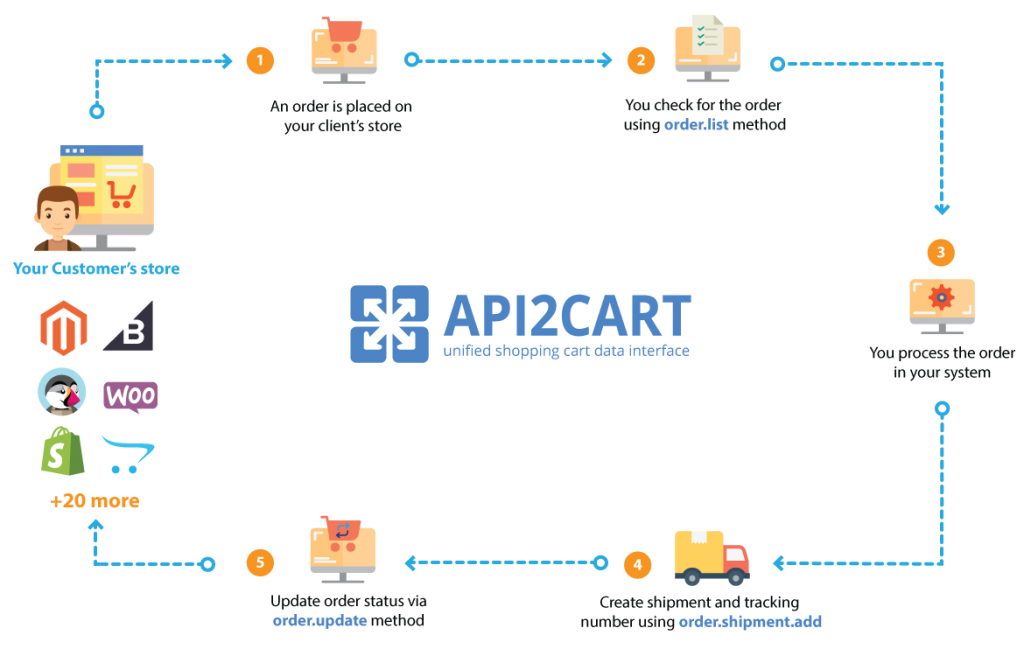
Conclusion
As you can see, API2Cart is a perfect choice for developing connections with the various eCommerce platforms with no spending a lot of money, time and valuable resources. It has all the necessary methods for implementing shipping API integration with eCommerce platforms. Through only one API your shipping solution will be able to integrate with more than 40 shopping platforms and marketplaces at once including platforms such as PrestaShop, Shopify, Magento, WooCommerce, OpenCart, BigCommerce, and many others.
The main advantage of this kind of integration for your shipping system is the fact that you will not need to develop separate integrations or take care to develop support for new shopping cart versions when they appear. This will save you money, time, and developer resources, and you will attract a lot of new clients for yourself.
Also, API2Cart has detailed API Docs with examples for easy integration development, full tech 24/7 support for customers and flexible pricing plans that depend on your business needs.
You can also schedule a call with our sales representative to get more details or start a free 30-day trial to see how easy your software can perform integrations with multiple shopping platforms at once.
